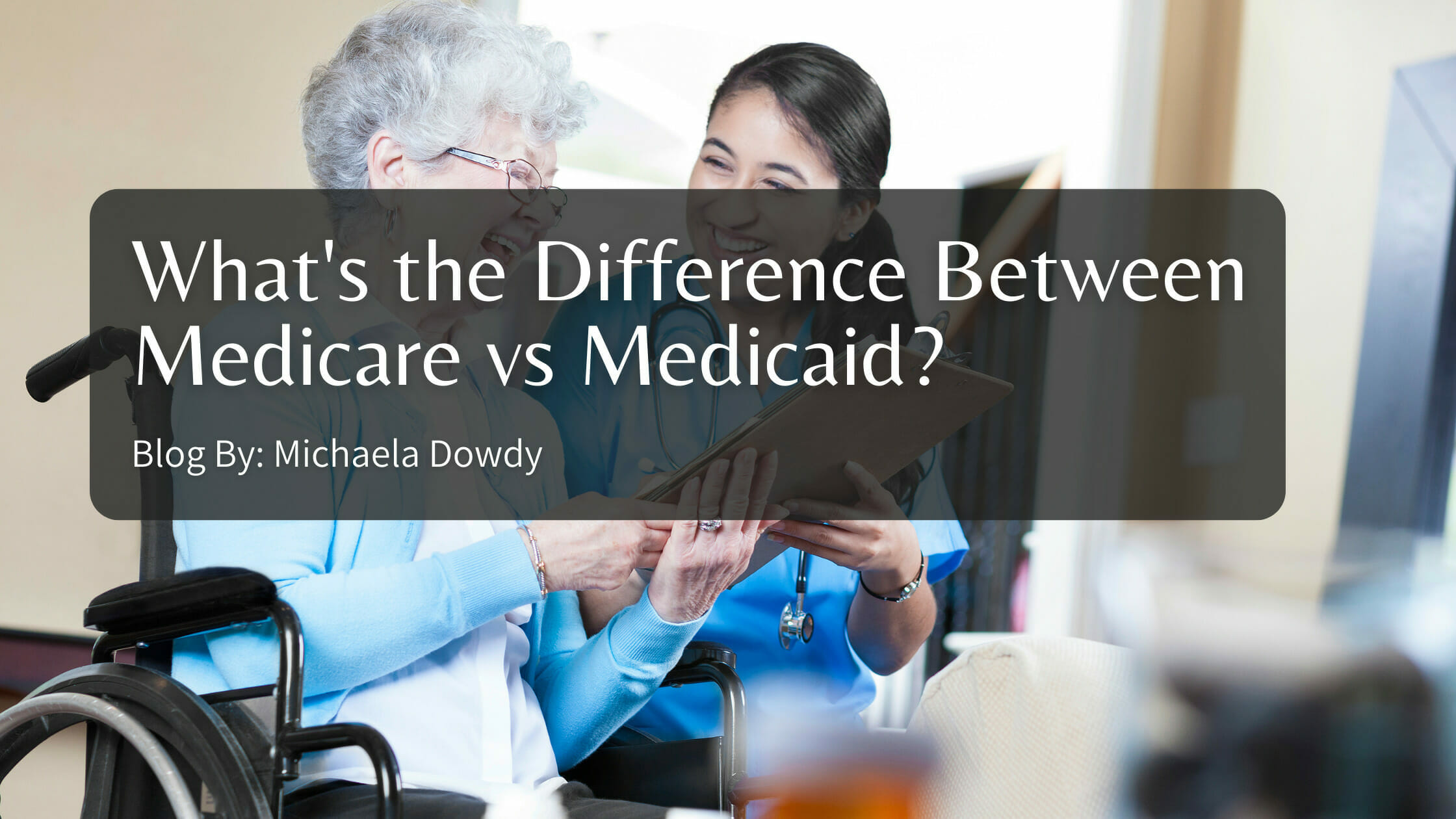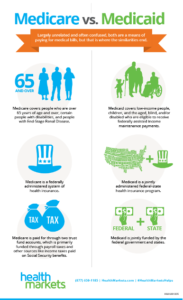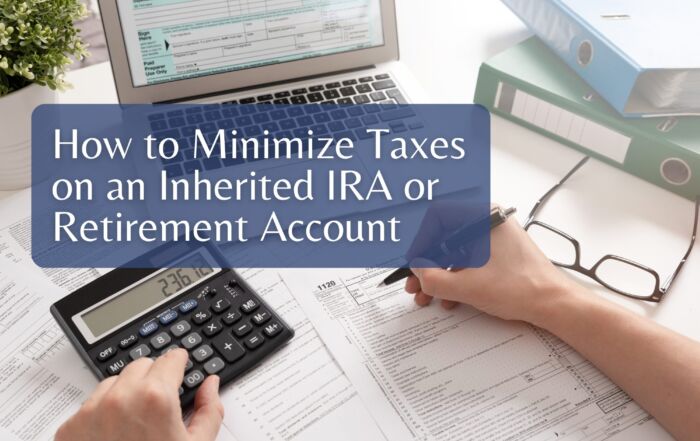What’s the Difference Between Medicare vs Medicaid?

When it’s time to explore government-subsidized healthcare options, the process can feel overwhelming. Medicare and Medicaid are often confused, but they serve different populations and have distinct qualifications. Here’s how to understand the key differences and choose the right path for your healthcare needs.
What is Medicare?
Medicare is a federal health insurance program primarily for individuals aged 65 and older. It also provides coverage for certain younger people with disabilities. There are four parts to Medicare:
- Part A: Hospitalization coverage
- Part B: Medical insurance
- Part C: Medicare Advantage Plans (offered through private insurers)
- Part D: Prescription drug coverage
Parts A and B are often provided with little or no out-of-pocket cost, while Parts C and D typically require premiums or copayments since they are managed by private healthcare companies. Every U.S. citizen is eligible for Medicare at age 65, regardless of income.
What is Medicaid?
Medicaid is a joint federal and state assistance program that offers health coverage to individuals and families with low income. Unlike Medicare, eligibility for Medicaid is income-based. It’s designed to provide comprehensive healthcare at no cost to qualified recipients.
Mandatory Medicaid Services Include:
- Hospitalization
- Laboratory services
- X-rays
- Physician services
- Family planning
- Nursing and home healthcare services
- Clinic visits
- Pediatric and family nurse practitioner services
- Midwifery services
A key distinction is that Medicaid often covers long-term care, which Medicare and most private insurance plans do not. Because Medicaid is state-administered, specific coverage and eligibility requirements can vary depending on where you live.
Which Program Is Right for You?
- Medicare is typically best suited for individuals age 65 or older, especially retirees.
- Medicaid is ideal for those with limited income, regardless of age, who meet their state’s qualification requirements.
If you’re nearing retirement age, you’ll likely turn to Medicare. However, if your income falls below the poverty line, Medicaid may be a better option due to its cost-free coverage.
Medicare vs. Medicaid: Frequently Asked Questions
Q: Can I qualify for both Medicare and Medicaid?
A: Yes. If you meet the age or disability requirements for Medicare and also qualify as low-income, you may be eligible for both programs. This is known as “dual eligibility” and can help reduce healthcare costs even further.
Q: Does Medicare cover long-term care?
A: No, Medicare generally does not cover long-term custodial care, such as nursing home stays. Medicaid, however, often does, making it an important option for low-income individuals needing extended care.
Q: Are there premiums or deductibles with Medicare?
A: Yes. While Part A is usually premium-free for most people, Part B typically requires a monthly premium, and Parts C and D (through private insurers) may come with additional costs.
Q: Is Medicaid available in every state?
A: Yes, Medicaid is available nationwide, but each state administers its own program. This means eligibility requirements, benefits, and application processes may vary by state.
Q: How do I apply for Medicare or Medicaid?
A: You can apply for Medicare through the Social Security Administration, typically starting three months before you turn 65. Medicaid applications are handled through your state’s health department or Medicaid office.
Q: If I’m still working at 65, do I have to enroll in Medicare?
A: Not necessarily. If you have employer-provided health insurance, you may be able to delay Medicare enrollment without penalties. However, it’s important to evaluate your options carefully to avoid late enrollment fees.
How Wiser Can Help
Understanding the differences between Medicare and Medicaid is an important step in planning for your future healthcare needs. Whether you’re approaching retirement or evaluating your eligibility based on income, choosing the right coverage can have a lasting impact on your financial well-being. At Wiser Wealth Management, our advisors craft custom financial plans tailored to your unique goals and circumstances, and that includes helping you evaluate how Medicare or Medicaid may fit into your overall strategy. If you have questions or want to feel more confident about your healthcare planning, schedule a consultation with one of our financial advisors today.
Michaela Dowdy
Financial Advisor
Share This Story, Choose Your Platform!
Wiser Wealth Management, Inc (“Wiser Wealth”) is a registered investment adviser with the U.S. Securities and Exchange Commission (SEC). As a registered investment adviser, Wiser Wealth and its employees are subject to various rules, filings, and requirements. You can visit the SEC’s website here to obtain further information on our firm or investment adviser’s registration.
Wiser Wealth’s website provides general information regarding our business along with access to additional investment related information, various financial calculators, and external / third party links. Material presented on this website is believed to be from reliable sources and is meant for informational purposes only. Wiser Wealth does not endorse or accept responsibility for the content of any third-party website and is not affiliated with any third-party website or social media page. Wiser Wealth does not expressly or implicitly adopt or endorse any of the expressions, opinions or content posted by third party websites or on social media pages. While Wiser Wealth uses reasonable efforts to obtain information from sources it believes to be reliable, we make no representation that the information or opinions contained in our publications are accurate, reliable, or complete.
To the extent that you utilize any financial calculators or links in our website, you acknowledge and understand that the information provided to you should not be construed as personal investment advice from Wiser Wealth or any of its investment professionals. Advice provided by Wiser Wealth is given only within the context of our contractual agreement with the client. Wiser Wealth does not offer legal, accounting or tax advice. Consult your own attorney, accountant, and other professionals for these services.






